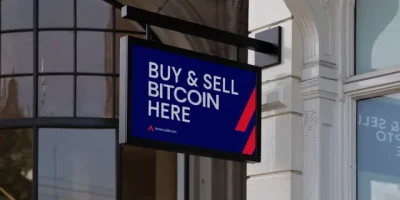Find Bitcoin ATM locations effortlessly! Discover fees, compliance, and more with my friendly guide to Bitcoin ATMs.
Exploring Bitcoin ATM Locations
When it comes to finding Bitcoin ATMs, there’s a whole world out there filled with opportunities. Let’s dive into where you can locate these handy machines globally and see which countries lead the pack.
Global Presence of Bitcoin ATMs
As of May 6, 2024, Bitcoin ATMs can be found in 73 countries worldwide. These machines offer a convenient way to buy and sell Bitcoin, giving me instant access to cryptocurrency without the need for an online exchange.
Here’s a snapshot of the global presence of Bitcoin ATMs:
| Region | Number of Countries | Number of ATMs |
|---|---|---|
| North America | 3 | 33,788 |
| Europe | 40 | 4,965 |
| Asia | 16 | 1,333 |
| South America | 9 | 155 |
| Oceania | 3 | 109 |
| Africa | 2 | 14 |
| Middle East | 2 | 10 |
This table highlights how widespread Bitcoin ATMs have become, making it easier for me to find one no matter where I am.
Leading Countries for Bitcoin ATMs
When I look at which countries have the most Bitcoin ATMs, a few stand out. The United States, Canada, and the United Kingdom are leading the way in making Bitcoin accessible to everyone.
| Country | Number of Bitcoin ATMs |
|---|---|
| United States | 22,394 |
| Canada | 10,394 |
| United Kingdom | 2,959 |
United States
The United States leads the world with over 22,394 Bitcoin ATMs (CNBCTV18). This extensive network provides me with numerous options to buy and sell Bitcoin easily. For more details on fees associated with these ATMs, check out bitcoin atm fees.
Canada
Canada ranks second with approximately 10,394 Bitcoin ATMs (CNBCTV18). This makes it incredibly convenient for me and my fellow Canadians to access cryptocurrency. Learn about the regulations influencing these ATMs at bitcoin atm regulations.
United Kingdom
The United Kingdom rounds out the top three with around 2,959 Bitcoin ATMs (CNBCTV18). If I’m in the UK, finding an ATM to facilitate my Bitcoin transactions is relatively straightforward. For a complete guide on the benefits of using Bitcoin ATMs, explore bitcoin atm benefits.
By understanding the global distribution of Bitcoin ATMs and knowing which countries have the most machines, I can confidently locate a Bitcoin ATM near me and enjoy seamless cryptocurrency transactions. For more comparisons, visit bitcoin atm comparison.
Understanding Bitcoin ATM Fees
If you’ve ever used a Bitcoin ATM, you might have noticed that the fees can vary. Let’s explore what factors influence these charges and the differences between network and operator fees.
Factors Affecting Fee Charges
The fee for using a Bitcoin ATM can range widely, typically from 10% to 23% based on several factors (Crypto Dispensers).
| Factor | Description |
|---|---|
| Geographical Location | Different countries or even cities might have varying fees depending on the local market and regulatory requirements. For example, Bitcoin ATM operators in the UK can potentially charge up to 20%. |
| Total Transaction Value | Higher transaction amounts sometimes have lower percentage fees, but this isn’t always the case. |
| Specific Operator | Each Bitcoin ATM operator sets their own fees based on their operational costs and desired profit margins. |
Bitcoin ATM operators incur various costs that contribute to the fees charged. These costs include:
- Compliance with regulations
- Cash logistics
- Internet connectivity
- Insurance
- Leasing space
- Marketing
- Customer support
- Maintenance and logistics
These various expenditures help explain why the fees for Bitcoin ATMs are generally higher compared to other methods (Crypto Dispensers).
Network Fees vs Operator Fees
When using a Bitcoin ATM, it’s essential to distinguish between network fees and operator fees.
Network Fees
Network fees, also known as miner fees, are charges paid to the miners who process and confirm Bitcoin transactions. These fees are not controlled by the ATM operators but fluctuate based on network demand.
| Fee Type | Range | Notes |
|---|---|---|
| Network (Miner) Fees | Varies | Depends on blockchain congestion and market demand. |
Operator Fees
Operator fees are set by the ATM owners and are intended to cover the operational costs and provide profit. These fees range from 5% to 20% per transaction (CoinTime).
| Fee Type | Range | Notes |
|---|---|---|
| Operator Fees | 5% – 20% | Higher compared to online exchanges but provide convenience. |
Understanding these fees can help users make informed choices about using Bitcoin ATMs. For more on specific fee structures, visit our detailed page on bitcoin atm fees.
For those curious about how Bitcoin ATM fees compare to other methods of acquiring Bitcoin, our page on bitcoin atm comparison could be insightful. Additionally, considering recent changes in regulations, our article on bitcoin atm regulations may provide helpful guidance.
Compliance and Security at Bitcoin ATMs
When using Bitcoin ATMs, it’s crucial to understand the regulatory measures and security protocols in place to ensure a safe transaction experience.
Regulatory Compliance Measures
Bitcoin ATMs adhere to stringent regulatory standards to mitigate risks associated with digital currency transactions. Operators must follow Anti-Money Laundering (AML) and Know Your Customer (KYC) policies, which help in identifying and preventing fraudulent activities. These guidelines are designed to protect users like me from potential threats while ensuring the integrity of the financial system.
In the United Kingdom, for instance, the Financial Conduct Authority (FCA) has taken strong actions against the illegal operation of cryptocurrency ATMs. In 2023, the FCA conducted inspections at 34 suspected locations, resulting in the shutdown of 26 illegal crypto ATMs (Sanction Scanner). Operators found unlawfully running these machines may face penalties, criminal charges, and be barred from engaging in other financial activities (Sanction Scanner). This regulatory vigilance ensures that the Bitcoin ATMs I use are operating within the legal framework.
Security Protocols for Users
Using Bitcoin ATMs comes with robust security measures to safeguard my transactions. General Bytes, a leading Bitcoin ATM manufacturer, provides extensive security protocols to protect users. These include physical safeguards like secure enclosures and tamper-evident designs, as well as advanced software security measures.
General Bytes emphasizes KYC/AML compliance, remote monitoring, and encrypted communications to ensure a high level of protection for users like me (General Bytes). Additionally, they offer warnings against scam calls or emails and advise on verifying transaction legitimacy.
| Security Protocols | Description |
|---|---|
| Physical Safeguards | Secure enclosures, tamper-evident designs |
| Software Security | Encrypted communications, remote monitoring |
| KYC/AML Compliance | Verification of user identity, adherence to regulatory standards |
| User Warnings | Alerts against scam calls/emails, advice on transaction verification |
Understanding these compliance and security measures provides me with confidence and assurance when using Bitcoin ATMs. For more information on the benefits and comparison with online exchanges, explore our articles on bitcoin atm benefits and bitcoin atm comparison.
Availability and Operational Details
Understanding the availability and operational nuances of Bitcoin ATMs can significantly enhance one’s experience and security when using these machines to buy or sell Bitcoin.
Density in the United States
The United States boasts the highest number of Bitcoin ATMs worldwide, making it incredibly convenient to find a location near you. As of May 2024, there are approximately 31,000 Bitcoin ATMs scattered across the country. This extensive density ensures that you’re likely to find a Bitcoin ATM in major cities and even smaller towns.
| Country | Number of Bitcoin ATMs |
|---|---|
| United States | ~31,000 |
| Canada | Data Not Specified |
| United Kingdom | Data Not Specified |
| Austria | Data Not Specified |
For comprehensive information on Bitcoin ATM locations globally, General Bytes’ Bitcoin ATM Map is a valuable resource, featuring a plethora of Bitcoin ATM locations mapped out for convenience.
Operational Processes at Bitcoin ATMs
Bitcoin ATMs offer a user-friendly experience for both buying and selling Bitcoin. Here’s a step-by-step guide to what the typical process looks like:
- Selecting the Transaction: At the ATM, choose whether you want to buy or sell Bitcoin.
- Identity Verification: Follow the on-screen instructions to verify your identity, which may include scanning your ID and entering your phone number.
- Wallet Address: For purchases, you’ll need to provide your Bitcoin wallet address. You can usually scan your wallet’s QR code for this purpose.
- Depositing Cash: Insert the amount of cash you wish to convert into Bitcoin. The ATM will display the equivalent Bitcoin value.
- Confirming Transaction: Review the transaction details and confirm. The Bitcoin will then be transferred to your wallet address.
- Receipt: Obtain a printed or emailed receipt of your transaction.
Bitcoin ATMs are operated by various third-party companies, with Coinhub and Coinme being two of the largest networks. These machines ensure compliance with regulatory standards, such as AML and KYC policies, providing a secure environment for cryptocurrency transactions. For more on regulation, visit our page on bitcoin atm regulations.
Given the growing adoption and popularity of cryptocurrencies, the Bitcoin ATM market is forecasted to grow at a CAGR of 62.5% from 2024 to 2031, reaching an impressive value of USD 5451 million by 2031. For more insight into the advantages of using Bitcoin ATMs, check out our article on bitcoin atm benefits.
Understanding these operational processes and the density of Bitcoin ATMs will help you make the most of these convenient kiosks.
Comparison with Online Exchanges
When choosing between Bitcoin ATMs and online exchanges, it’s essential to consider both the fees and convenience associated with each option.
Fee Comparison with Online Platforms
Bitcoin ATM fees are generally higher than the fees charged by online exchanges. According to CoinTime, Bitcoin ATM fees typically range from 5% to 20% per transaction, whereas online exchanges often charge less than 1% in transaction fees (Bankrate). The high fee range can be attributed to the convenience of immediate transactions and cash availability.
| Service Type | Fee Percentage |
|---|---|
| Bitcoin ATMs | 5% – 20% |
| Online Exchanges | < 1% |
In addition to transaction fees, Bitcoin ATMs might also impose miner fees. For instance, Bitcoin Depot ATMs charge up to 20% in exchange fees without always disclosing the total cost to customers (Bankrate).
Bitcoin ATM operators’ fee structures can vary based on factors such as geographical location, total transaction value, and the specific operator. According to Crypto Dispensers, fees range from 10% to 23% for converting fiat currency into cryptocurrency.
For more detailed information, visit our article on bitcoin atm fees.
Convenience of Bitcoin ATMs
The primary appeal of Bitcoin ATMs lies in their convenience. Unlike online exchanges, Bitcoin ATMs provide instant access to Bitcoin. This allows users to buy Bitcoin on the go without waiting for transaction confirmations that can take several days. Additionally, Bitcoin ATMs often operate 24/7, making them accessible at any time.
Bitcoin ATMs are especially useful for people who prefer cash transactions or those without access to traditional banking services. The process is straightforward, typically involving just a few steps: inserting cash, scanning a QR code, and receiving Bitcoin within minutes.
For individuals concerned about fee structures, the convenience of Bitcoin ATMs can outweigh the higher costs. To explore more about the benefits and comparisons, check out our articles on bitcoin atm benefits and bitcoin atm comparison.
For details on Bitcoin ATM regulations, visit our article on bitcoin atm regulations.
Impact of Regulations on Bitcoin ATMs
Bitcoin ATM regulations can significantly affect the way users access Bitcoin ATMs. Let’s dive into the regulatory changes in Europe and the legal landscape that shapes the Bitcoin ATM industry.
European Regulatory Changes
In Europe, the introduction of the Anti-Money Laundering Directive (AML5) in 2018 brought stringent requirements for Bitcoin ATM operators. These changes force operators to comply with extensive Know Your Customer (KYC) and Anti-Money Laundering (AML) regulations. Many European Bitcoin ATM operators shut down their machines as they struggled to meet these requirements.
One key impact of this directive has been the increase in operational costs, which has led to higher fees for users. Ensuring compliance demands additional resources for secure operations and continuous monitoring.
| Directive | Impact |
|---|---|
| AML5 (2018) | Stricter KYC and AML requirements, increased operational costs, shutdown of several Bitcoin ATMs |
Legal Landscape for Bitcoin ATMs
The legal landscape for Bitcoin ATMs varies across different regions. In the UK, the Financial Conduct Authority (FCA) banned Bitcoin ATMs on March 10, 2022. The FCA’s decision stemmed from concerns over digital currency laundering and insufficient background checks by operators. Before the ban, the UK had only 80 Bitcoin ATMs, whereas the United States had over 32,000.
The FCA emphasized that many of these ATMs were located in supermarkets and convenience stores. Operators are now required to ensure proper KYC checks, a practice mandatory for online bitcoin transactions as well.
Operators found unlawfully running these machines face severe penalties, including criminal charges and the possibility of being barred from engaging in other financial activities.
| Region | Regulation | Consequence |
|---|---|---|
| UK | FCA Ban (2022) | Shutdown of all 80 Bitcoin ATMs in the UK, criminal charges for unlawful operation |
| Europe | AML5 | Increased fees, difficulties in compliance for operators |
The evolving legal landscape underscores the importance of staying informed about the latest regulatory changes. For deeper insight into the regulations impacting Bitcoin ATMs, feel free to explore our article on bitcoin atm regulations.
Case Studies and Market Trends
Exploring the successful cases of Bitcoin ATM operators and understanding the current market trends can provide valuable insights into the promising future of Bitcoin ATM locations.
Success Stories of Bitcoin ATM Operators
One of the leading success stories in the Bitcoin ATM industry is Athena Bitcoin Global. They operate a global network of Bitcoin ATMs in 10 states within the U.S. and have expanded their services to 3 countries in Central and South America. Athena Bitcoin ATMs enable customers to buy or sell Bitcoin and other major cryptocurrencies in exchange for cash such as dollars or pesos.
Another notable achievement for Athena Bitcoin Global was their involvement with El Salvador. On June 8, 2021, El Salvador became the first country to adopt Bitcoin as legal tender. Athena Bitcoin Global entered into agreements to provide various services, including installing and operating 200 Chivo Bitcoin ATMs in El Salvador. They also installed additional ATMs at consulates in the U.S. and other U.S. locations.
Athena Bitcoin ATMs offer one-way and two-way exchanges, allowing customers to either buy crypto with cash or sell crypto and receive cash. These 5-foot tall kiosks with large touchscreens facilitate customer interaction and make transactions easier and more intuitive (SEC.gov).
Growth Projections and Revenue Insights
The global Crypto ATM market is projected to grow at an impressive CAGR of 62.5% from 2024 to 2031, reaching a value of USD 5451 million by 2031 (CoinTime). Currently, there are over 37,615 crypto ATMs worldwide, and their numbers are increasing, driven by the rising popularity and adoption of cryptocurrencies for day-to-day transactions.
Bitcoin ATMs have proven to be a lucrative business for operators. Depending on factors such as location, transaction volume, and fees charged, Bitcoin ATMs can potentially generate between $1,000 to $10,000 in monthly revenue (CoinTime). The estimated fees charged per transaction made through a Bitcoin ATM can range from 10% to 12% of the transaction amount. Operators aim to achieve monthly transaction totals upwards of $30,000 to enhance profitability (CoinTime).
| Revenue Metric | Average Value |
|---|---|
| Monthly Revenue per ATM | $1,000 – $10,000 |
| Fees Charged per Transaction | 10% – 12% |
| Target Monthly Transaction Volume | $30,000 |
| Global Crypto ATM Market Value (2031) | USD 5451 million |
In terms of operational costs, hosting a Bitcoin ATM is typically free, and operators usually pay a fixed monthly fee for space in the host location (CoinTime). The industry has rapidly grown from a few machines to over 37,000 kiosks worldwide, operated primarily by larger organizations. These ATMs cater to retail customers who prefer in-person transactions for buying or selling Bitcoin.
For more insights on the financial aspects of Bitcoin ATMs, you can read about bitcoin atm fees. To understand the legal implications, check out bitcoin atm regulations. And for a broader perspective on the utility of these machines, explore bitcoin atm benefits.
Utilizing the General Bytes Bitcoin ATM Map
Finding the best Bitcoin ATM locations just got easier with the General Bytes Bitcoin ATM Map. This powerful tool makes it easy for me to locate Bitcoin ATMs and access various cryptocurrencies on the go.
Features and Functionality of the Map
The General Bytes Bitcoin ATM Map is more than just a locator. It offers detailed information about each ATM, including the exact address, operating hours, and the supported cryptocurrencies. One feature I find particularly helpful is the “Click to navigate” button, which seamlessly opens Google Maps for precise directions (General Bytes).
Another cool feature is the filter option, which allows me to search for ATMs based on specific criteria such as the type of cryptocurrency supported and the location’s accessibility. This makes finding an ideal ATM straightforward.
Supported Cryptocurrencies and Locations
The map supports a wide range of cryptocurrencies, making it versatile for various users. Here are some of the cryptocurrencies I can find at these ATMs:
| Cryptocurrency | Abbreviation |
|---|---|
| Bitcoin | BTC |
| Bitcoin over Lightning | LBTC |
| Ether | ETH |
| USD Coin | USDC |
| Dogecoin | DOGE |
| Litecoin | LTC |
| Ripple | XRP |
| Monero | XMR |
| Bitcoin Cash | BCH |
| Shiba Inu | SHIB |
| Cardano | ADA |
| Tether USDT (ERC20) | USDT |
| Tether USDT (TRC20) | USDT |
| ChainLink | LINK |
Data from General Bytes
Additionally, the coverage of Bitcoin ATM locations on the map spans over 60 countries, including the United States, Canada, various European nations, and more. This means I can find a Bitcoin ATM almost anywhere I go, whether I’m traveling in North America, Central America, South America, Europe, Asia, or Australia.
For anyone curious about the fees associated with using these ATMs, be sure to check our detailed guide on bitcoin atm fees. If you’re interested in the regulatory landscape, our article on bitcoin atm regulations provides comprehensive insights.
By leveraging the features of the General Bytes Bitcoin ATM Map, I can successfully navigate the world of Bitcoin ATMs and find locations that meet my needs quickly and conveniently.



